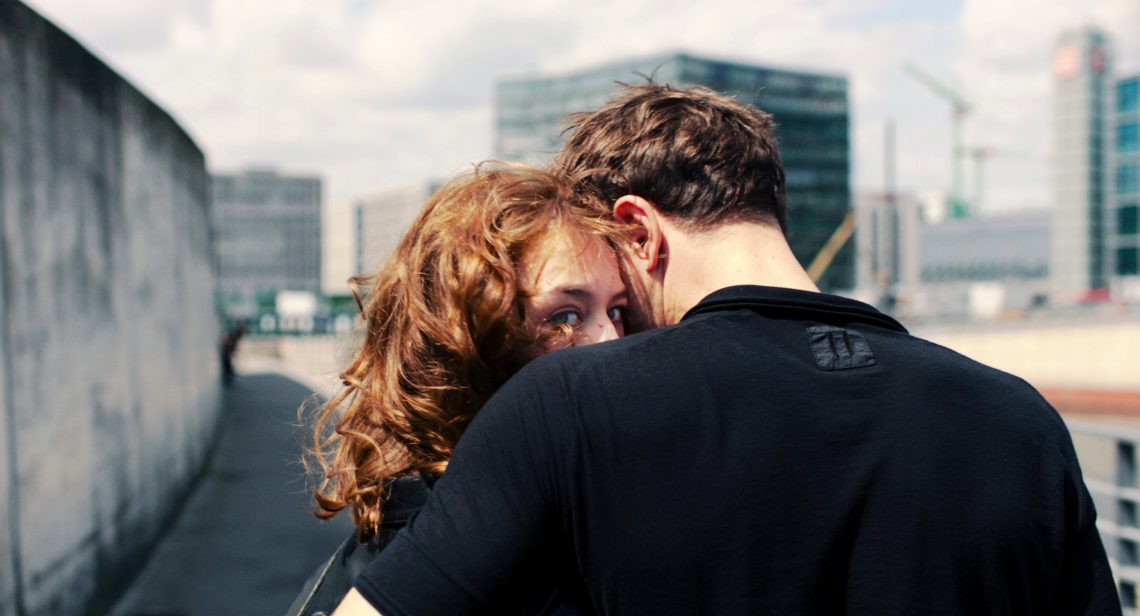The German director Christian Petzold is a maestro of modern (or modernized) myths. Previous films have reworked James M. Cain’s archetypal crime novel The Postman Always Rings Twice, Edgar G. Ulmer’s fatalistic noir Detour, the Z-movie cult film Carnival of Souls and, less directly, the story of Orpheus and Eurydice. His latest, Undine, is an occult love story, drawing on a classic of German Romanticism.
The eponymous subject of Friedrich de la Motte Fouqué’s 1811 novella, Undine is a female water sprite who marries a male human to gain an immortal soul with the proviso that, should her husband prove unfaithful, he will forfeit his life and she will lose her soul. Instantly popular, it provided the source for an 1816 E.T.A. Hoffmann opera and, probably, Hans Christian Andersen’s 1837 fairytale “The Little Mermaid.”
Some literary critics have seen the character Undine as a dangerous femme fatal and equated Fouqué’s Undine with Keats’s La Belle Dame Sans Merci. On the other hand, the Austrian philosopher-poet Ingeborg Bachmann turned Fouqué on his head by retelling the story from Undine’s point of view. Published in the early 1960s, Bachmann’s “Undine Leaves” is an anguished monologue and a scathing critique of the patriarchal order. The opening words have been translated as “Men! You monsters!”
Petzold—who has cited Bachmann in his interviews, along with a discussion of the Undine myth as a story of betrayal found in the literary critic Peter von Matt’s Romantic Treachery—is less radical and more literal-minded in drawing on the fairytale. His Undine transposes the story to contemporary Berlin, casting Paula Beer in the title role and Franz Rogowski, who played opposite her in Petzold’s last film, Transit, as her lover Christoph—not the man who betrays her, although perhaps he inevitably, if inadvertently does as well.
With its haunting indifference to logic, Undine only makes sense as a demonstration of the ways in which men and women fail to understand one another. The first scene, played in a restaurant courtyard, replete with awkward silences and agonizing close-ups, shows Undine being dumped by her current lover, Johannes. “If you leave me, I’ll have to kill you,” she warns him, heartbroken but matter-of-fact. Then she hastens across the street to deliver a talk at her workplace, the Senate Department for Urban Development and Housing, having instructed him to wait for her. (He does not.)
Is Undine’s threat the hyperbole of a woman spurned or an edict delivered by a paranormal being? It’s an open question. Certainly, this stylish, self-possessed, essentially solitary young person would not be the first supernatural entity to inhabit a Petzold film. At the very least, she is one of his many displaced protagonists—the stranded refugee in Transit, the concentration camp survivor in Phoenix, the internal exile in Barbara, and the unaware ghost in Yella. Her somewhat unlikely job involves explicating city models and briefing foreign visitors on Berlin’s architectural history. Is she a genius loci, an embodiment of the spirit of the place? The name Berlin, she explains to a group of tourists, might derive from a Slavic term for “dry spot in the marsh.” Has the water sprite of Fouqué’s legend grounded herself in a city, known for its rivers and lakes, built on drained swamps?
Petzold’s protagonists have often been women, but seldom one so opaque; his Undine, like that of Fouqué, is an enigmatic Other. She receives mysterious transmissions, including a phone call from a drowned man, and has unexplained affinities and perhaps telekinetic powers. When she returns to the restaurant of the opening scene hoping to find Johannes, she is instead chatted up by Christoph (Rogowski) who was impressed by her lecture. As they stand before a large, decorative fish tank, Undine hears her name seemingly called from the aquarium and Christoph clumsily backs into the case holding it. The tank crashes down and shatters, flooding the restaurant and, as a thunderbolt might, knocking them both to the floor.
The pair have (literally) fallen in love. Among the debris, Undine finds the figurine of a miniature diver and takes it as a talisman. From here on, the movie assumes the quality of a waking dream. Christoph is himself an industrial diver, currently doing restoration work in what appears to be the Lingesetalsperre reservoir, some hours away from Berlin. In addition to its elliptical time frame and late eighteenth-century musical score, intermittently employing passages from Bach’s grave and delicate Concerto in D minor, the movie’s uncanniness is derived from the combination of precise geography and impossible distances.
Christoph and Undine embark on an ecstatic affair consecrated in a beautifully shot underwater sequence. Undine has points of contact with Guillermo del Toro’s romantic fantasy The Shape of Water, but the allegory is more elusive. (It is tempting to imagine Petzold as Christoph, reaching in vain for the elusive water sprite as they swim submerged in the reservoir. ) More signs and wonders: the reservoir has an underwater ruin marked with Undine’s name. She has an apparent ability to dive without breathing apparatus, but, having perhaps gone home, needs help to return to the upper world. Thus, Christoph applies CPR to the rhythm of the Bee Gees’ “Staying Alive.”
Advertisement
Not long after, the talismanic diver recovered from the restaurant aquarium falls from Undine’s desk and breaks (as does, metaphorically, the dam). Johannes, who we discover is a professional swimmer, resurfaces seeking a reconciliation. Christoph, hitherto so solicitous and adoring, becomes jealous. Is the reservoir itself jealous, as well? Here, Undine plunges decisively into the supernatural, with accidents, acts of vengeance, vanishings, and intimations of Wuthering Heights.
Bachmann’s “Undine Leaves” conjured an existential abyss between men and women—something that Petzold acknowledges once Undine returns to the depths and Christoph, himself brought back to life, attempts to follow her. The least political of Petzold’s recent films, Undine is also the most rueful. All is water under the bridge.


